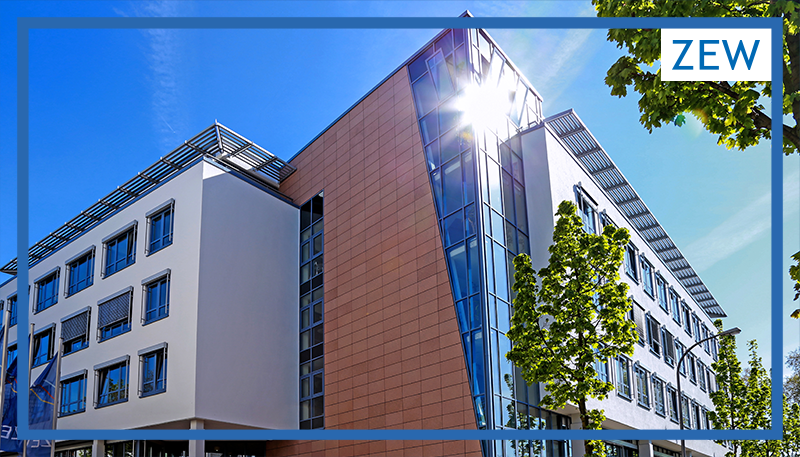#ZEWPodcast: Navigating the Crisis with Innovation, 30 Years of MIP
#ZEWPodcastZEW Podcast with Bettina Peters and Christian Rammer
The Mannheim Innovation Panel (MIP), commissioned by the Federal Ministry of Education and Research, proudly marks its 30th anniversary in 2023. Meanwhile, discussions about Germany’s attractiveness as a business location, future viability, and innovation prowess have been buzzing. In the latest ZEW podcast, Professor Bettina Peters and Dr. Christian Rammer, deputy heads of ZEW’s “Economics of Innovations and Industrial Dynamics” Unit, share their insights on Germany’s innovation landscape and its future with podcast host Bastian Thüne. Additionally, they explain what makes working on the MIP still exciting even after so many years.
Thanks to the diverse insights the MIP provides into the innovation activities of firms, it was awarded the Schumpeter School Award this summer, making it the first panel ever to receive such an honour. Explaining how it all came about, Christian Rammer says, “The goal back then was to create a panel dataset, not only to keep statistics on innovation activities in the German economy but also to have a dataset that could be used for scientific analyses and informing economic and innovation policies.” The evaluations are carried out using various indicators such as product launches, patents, and process developments, with a dataset covering over ten million firms.
Benefits for businesses, science and politics
The MIP’s data collection not only serves science and politics but also holds relevance for businesses. Investigations include the quantification of the employment effects of innovations as well as product and process innovations.
Even technological innovations such as artificial intelligence are being scrutinised. As far as employment is concerned, Bettina Peters does not expect it to have any negative consequences. If anything, the data shows the opposite: “Firms that use AI methods in the development of new products are experiencing strong employment growth. Significantly more than firms that do not.”
Innovations help navigate crises
Concerning the current crisis narrative, her colleague offers reassurance: “The debate over Germany’s attractiveness as a business location invariably surfaces when the economy takes a hit. However, similar challenges exist elsewhere, and history shows time and again that innovation is the lifeline out of such situations.” After 30 years of observation, the benefits of innovation are clear: “When things have gone downhill, they have eventually gone up again, and those who are capable of innovation generally fare better in such challenging situations.”
Both Bettina Peters and Christian Rammer have been working with the MIP for many years. Bettina Peters explains why exploring the MIP remains captivating after 30 years: “Well, first of all, innovations are, by definition, something new. Therefore, it’s always exciting to witness how firms bring fresh ideas to market or pioneer novel production processes. The MIP provides a unique dataset that allows an in-depth exploration of how firms strategically position themselves in terms of innovation over extended periods. And the MIP itself evolves with the times.”



